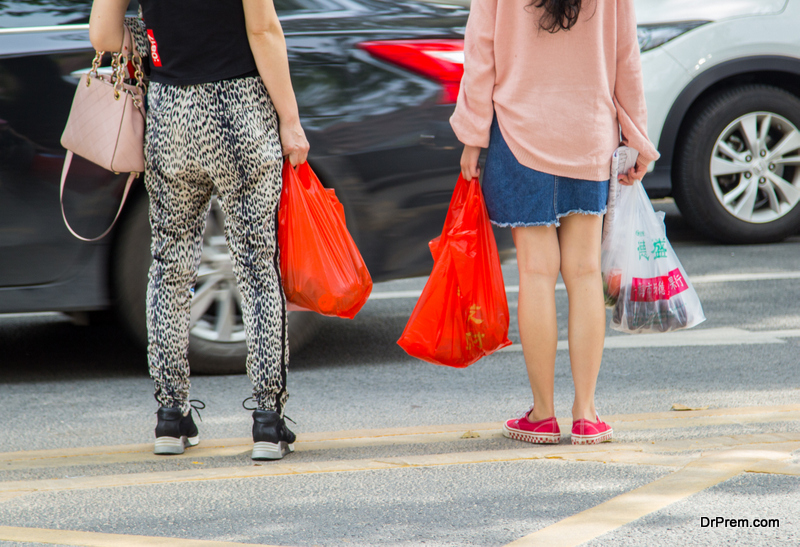The mounting plastic pollution is making our planet unsustainable. The time is high for nations to promote the use of single-use plastic alternatives. The emphasis is to use more reusable items. Single-use plastics or disposable plastic items have taken over our daily lives contributing to the global plastic pollution crisis.
In a recent event, the parliament members of the European Union showed unanimous support in banning most of the commonly used single-use plastic items by 2021. The list includes commonplace items like plastic cutlery, stirrers, straws, cotton buds and balloon sticks.
Members of the European Parliament will also have to meet the plastic bottle collection target of 90% and bottles should be made from at least 30% recycled plastic by 2030. This new legislation is passed to reduce the environmental damage bill of about $24.7 million.
Why is the need for single-use plastic alternatives?
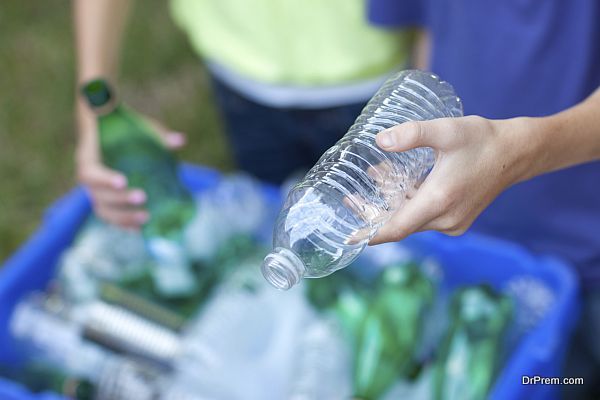
Plastic waste statistics reveal a scary picture. According to the National Geographic magazine:
- Some 18 billion pounds of plastic waste are dumped into the oceans every year from the coastal regions.
- 40% of the plastics produced go in packaging that is used once and then discarded.
- Almost half of the plastic production has occurred since 2000.
- Asia contributes 50% of the global plastic production of which 29% is produced in China alone.
- Global plastic recycling is less than 1/5th of the amount produced.
Numbers released by the UK government says:
- The world’s oceans are holding more than 150 million tonnes of plastic. About one million birds and more than 100,000 sea mammals die from either eating plastics or by getting entangled with it.
- The hazards of plastic do not end here. The plastics that are not eaten are broken down to microplastics. These find quick ways to water bodies and oceans ending up in the stomachs of marine animals.
- 5 billion plastic straws are thrown away in the UK itself every year.
Plastic waste statistics should be a wakeup call for all of us. The staggering plastic pollution on earth can’t be checked by mere reduction of plastic production or by increasing recycling costs. The next best thing is to promote the use of single-use plastic alternatives by choosing eco-friendly and reusable items.
11 Single-use plastic alternatives offering sustainable solutions:
1. Cotton- buds:
 Plastics from cotton buds are spotted in the stomachs of Loggerhead turtles, sea birds and many other species of fish caught in the UK. Stylish organic cotton buds made with biodegradable paper is a much better alternative for single-use plastics.
Plastics from cotton buds are spotted in the stomachs of Loggerhead turtles, sea birds and many other species of fish caught in the UK. Stylish organic cotton buds made with biodegradable paper is a much better alternative for single-use plastics.
2. Bin liners:
The plastic bags that we use for bins can take 1000 years to decompose. Compostable bin liner is another good single-use plastic alternative. These liners take only 6-12 weeks to degrade into biomass depending on the composting conditions. Compostable bin liners have a greater capacity and can fit in the bins of any size.
3. Drinking straws:
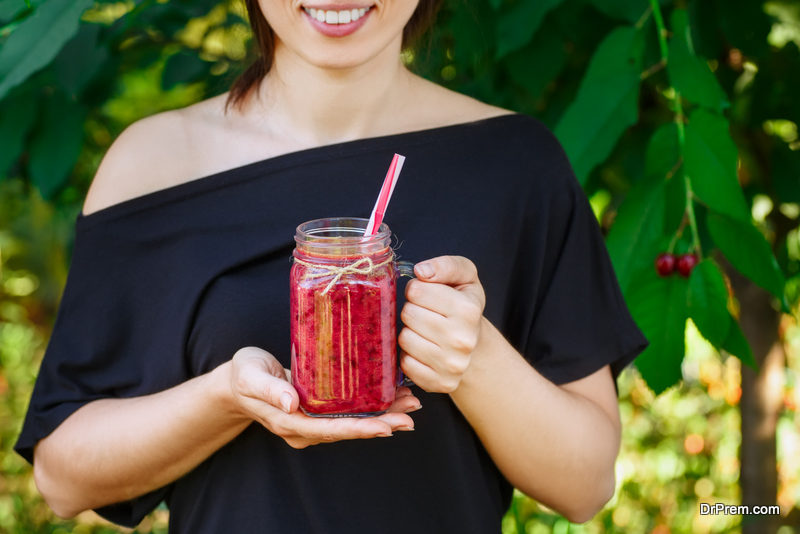 Plastic drinking straws find ubiquitous use at homes, public eateries, hotels and restaurants. Reusable dish-washer friendly natural bamboo straw is gradually making its entry to the mainstream market.
Plastic drinking straws find ubiquitous use at homes, public eateries, hotels and restaurants. Reusable dish-washer friendly natural bamboo straw is gradually making its entry to the mainstream market.
The straws can be used for drinking both hot and cold beverages. Leading hotels and business organizations have started using these straws as a means of sustainable solution. The straws can be reused and are easily compostable.
4. Toothbrushes:
Toothbrushes are another great contributor to plastic pollution. 100% biodegradable toothbrushes that come with zero-waste packaging are the best alternatives for single-use plastics. These will degrade naturally without requiring any recycling cost.
The charcoal bristles are good for people with sensitive teeth but are seeking white death and healthy gums. They can avoid chemical loaded teeth whitening gels that are damaging for tooth enamel.
5. Coffee cups:
 Plastic paper cups, paper cups with plastic lids and some lined with plastics is another component of plastic pollution. Fancy designed reusable cups are better alternatives to single-use plastic. Outlets in many countries are offering discounted rates to customers for bringing their own mugs/cups.
Plastic paper cups, paper cups with plastic lids and some lined with plastics is another component of plastic pollution. Fancy designed reusable cups are better alternatives to single-use plastic. Outlets in many countries are offering discounted rates to customers for bringing their own mugs/cups.
Cups made of sustainable glass and corks are being launched in workplaces. Porcelain and aluminum or other metallic cups/mugs are better choices in every way. Getting used to in carrying travel cups/mugs will help in reducing the plastic burden significantly.
6. Reusable water bottles:
More we use disposable plastic water bottles more we create pressure on plastic recycling costs. It is time to go back to the era of carrying sturdy water bottles made of hardened glass or metals. Use of these water bottles as an alternative to single-use plastic is picking up as manufacturers are coming up with attractive designs at reasonably low prices.
7. Shopping bags:
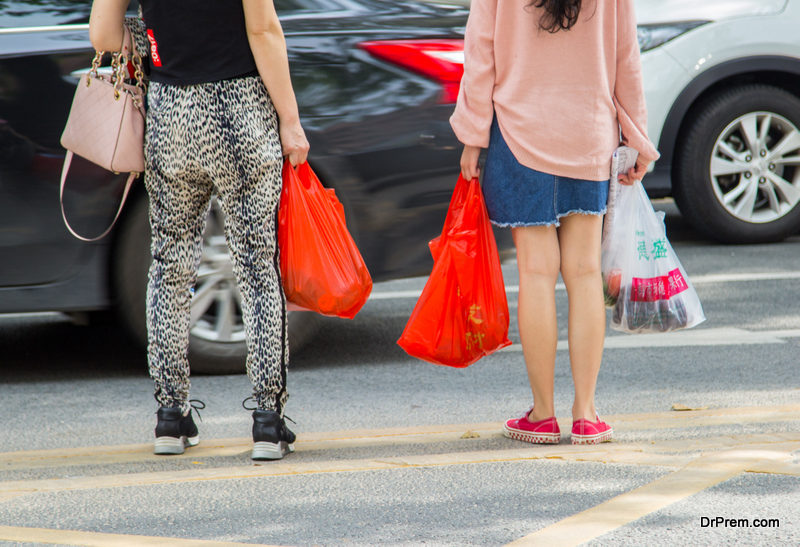 Plastic shopping bags are abundant in every shopping malls and outlets. Shoppers in the US use nearly one plastic bag per head every day. South Africa alone uses 8 billion plastic shopping bags every year. It is time to switch over to recyclable shopping bags or develop a habit of carrying a shopping bag always.
Plastic shopping bags are abundant in every shopping malls and outlets. Shoppers in the US use nearly one plastic bag per head every day. South Africa alone uses 8 billion plastic shopping bags every year. It is time to switch over to recyclable shopping bags or develop a habit of carrying a shopping bag always.
A majority of the branded and medium-sized shopping stores are already handing out designer shopping bags made from recyclable fabric. This also offers a better sustainable solution enabling more women empowerment in the manufacturing line.
8. Disposable cutlery:
Plastic spoons, forks, knives, plates, glasses etc. contribute to 40 billion single-use plastic items which are not recycled. Maintaining metallic utensils and cutlery is the best alternative to single use plastic that one can think of. But biodegradable eco-friendly cutlery made of bamboo can well serve the purpose of disposability.
9. Wireless bamboo keyboard:
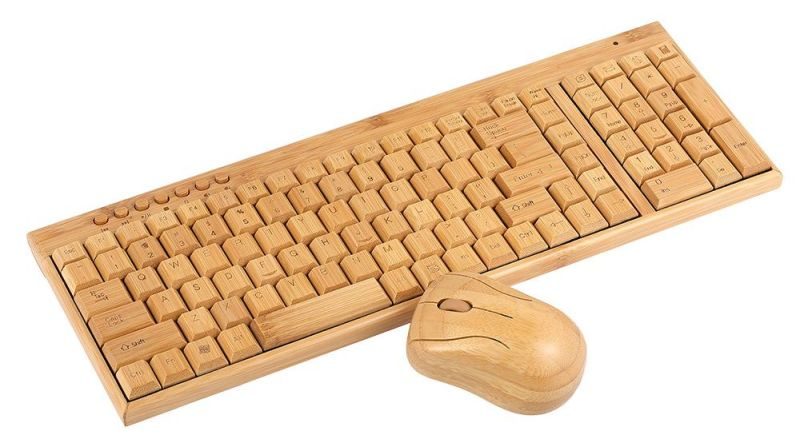
Although not considered as a single-use plastic, the quantity of discarded e-waste is growing at a great speed. Discarded keyboards form a bulk of plastic waste. The handcrafted wireless bamboo keyboard is likely to gain popularity in the coming years. These keyboards are stylishly designed and its adoption would take few steps ahead in reducing the plastic footprint.
10. Sandwich wrappers:
Ditch the disposable plastic cling wrapper. Instead, use reusable BPA free wrappers that are easily washable in machines and can fit any sandwich shape and size.
11. Use lunchboxes:
 Disposable takeaway containers make up billions of plastic waste every year. A larger portion of these items are Styrofoam containers that cannot be recycled. Avoid pre-packaged meals. Do not accept plastic containers.
Disposable takeaway containers make up billions of plastic waste every year. A larger portion of these items are Styrofoam containers that cannot be recycled. Avoid pre-packaged meals. Do not accept plastic containers.
Instead, carry a lunchbox if you badly need a prepackaged meal. Silicone food containers can be a better option. They are not biodegradable but are chemically inert and do not contribute to micro-plastic or toxin accumulation.


